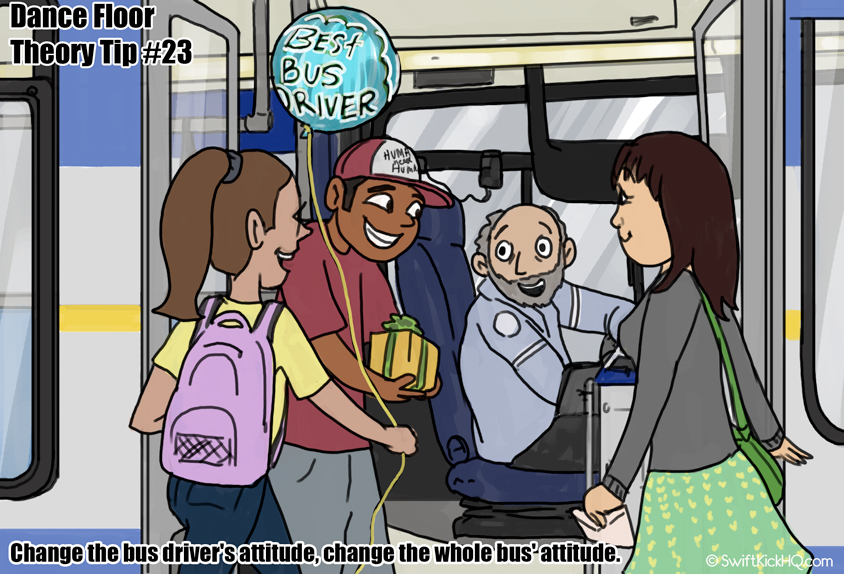Stop thinking so big to transform your team’s culture.
John Gottman, a leading expert on relationships, found, after decades of research, that successful long-term relationships aren’t built on big, dramatic gestures. Instead, they thrive on what he calls “small things often”—little actions, repeated frequently, that make the other person feel valued and connected. Things like expressing appreciation, daily check-ins, 6-second kisses, celebrating small wins, laughing together, being curious, and so on.
This concept doesn’t just apply to romantic partnerships. It’s a mindset every leader aiming to foster a Culture of Connection™, should adopt… well minus the kissing part (HR! HR! HR!). Small acts of care and intentionality, practiced often, have the power to transform your team or organization from a group of individuals into a connected, high-performing group or community.
Don’t get me wrong—big initiatives have their place. The problem is that they’re like fireworks: impressive in the moment but quick to fade. What really drives long-term connection, engagement, and retention in teams and organizations? Small things done consistently over time.
Don’t wait for the next quarterly strategy session, work-anniversary, or holiday party. Focus on small actions you can take every day to make your people feel welcomed, connected, and engaged.
The value of small things often:
- Makes You Human:
Small actions, like remembering someone’s favorite coffee order or asking about their weekend plans, show you see your team members as human beings, not just “employees” or “members.” This connects to what I call the Two Hat Theory: every leader wears a “Technical Hat” (focused on results and performance) and a “Human Hat” (focused on relationships and well-being). The best leaders know when to switch hats—and small acts of care are all about the Human Hat. - Builds Trust:
Consistency builds trust. In Gottman’s research, he found that reliability in small things leads to big trust. The same is true with leaders, when you repeatedly do small things for someone that shows you know them, then when it comes time for them to trust you on something big, they’ll have your back. - They’re Contagious:
When leaders model small acts of connection, they set the tone for the rest of the team. Want a culture of people who celebrate each other’s wins or step up to support a struggling colleague? Start by modeling those behaviors yourself.
If you’re wondering what “small things often” looks like in practice, here’s a cheat sheet:
- Celebrate Micro-Wins: Big milestones deserve applause, but don’t overlook the small ones. Did someone send out an excellent client email or solve a tricky problem? Acknowledge it in the moment. Only 11% of employees say they receive recognition weekly, and a mere 2% receive it daily
- Use Names, Not Just Titles: It’s a small gesture, but calling someone by their name (rather than their job title or generic “team”) is powerful. It reinforces their individuality.
- Write a Quick Thank-You: Whether it’s a handwritten note, post-it, or a Slack message, a quick “Thanks for your effort on X” can make someone’s day.
- Ask and Actually Listen: During one-on-one meetings, ask how your people are really doing—and take the time to hear their answers.
- Surprise with Care: Bring in donuts for no reason. Share a book you think someone would like. These little surprises say, “I see you.”
The Science Backs This Up
The idea that small things often make a difference isn’t just feel-good fluff. If you just take showing appreciation alone, studies on employee engagement show that frequent, positive reinforcement is directly tied to improved performance and retention. Here’s a quote from an Eliassen study on positive reinforcement in the Workplace:
“Put simply, praise, a form of positive reinforcement, inspires employees to work hard and produce their best work, thereby directly benefiting the company. When you parse down the data even further, it is revealed that, “…more than a quarter of your employees’ inspiration and effort comes from whether you, as their leader, recognize their accomplishments with praise. Seems like a pretty large return on investment for an action that takes five minutes of your time.” Eliassen
The connection between regular positive reinforcement and engagement, retention, and productivity isn’t just a coincidence—it’s evidence that small, consistent actions matter.
The Challenge for Leaders
Here’s the thing: small actions don’t take much effort, but they do require intentionality. It’s easy to think, “I’ll send that thank-you email later” or “I’ll acknowledge their hard work in the next meeting.” But too often, “later” turns into never.
To embed small things into your leadership practice, treat them like habits. Set reminders, create rituals, or even keep a checklist if you need to. The point isn’t perfection—it’s consistency.
Start today. What’s one small action you can take in the next hour to make someone on your team feel valued? Write that thank-you note, give that shoutout, or ask someone how they’re doing—and truly listen to their answer.
Repeat it tomorrow. And the next day. And the day after that. Because small things often are how you build not just better relationships, but a better culture.Great leaders don’t need grand gestures to inspire their teams. They just need to be the kind of person who cares enough to show up consistently in small, meaningful ways. If you want to build a Culture of Connection™, remember this: It’s not about doing one big thing—it’s about doing small things often.




